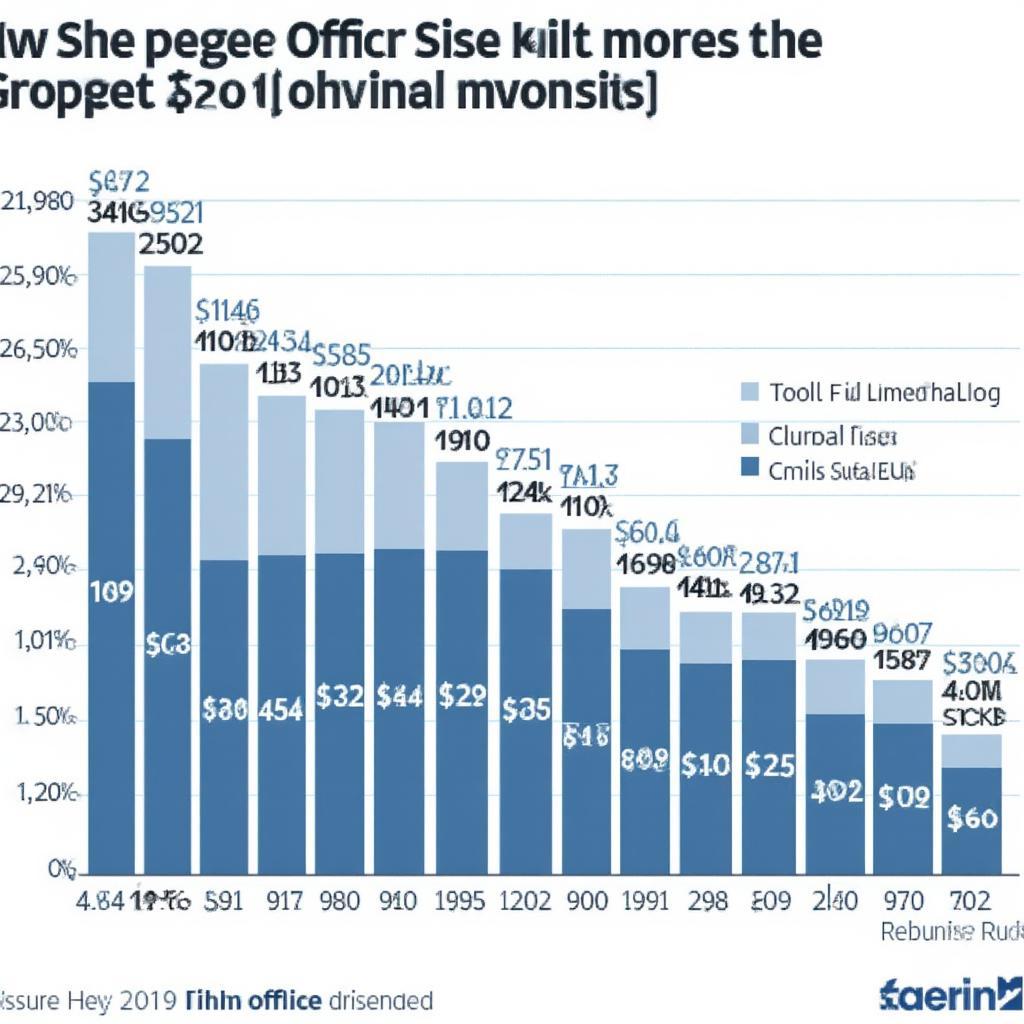The Pinnacle of Cinematic Education Top American Film Schools

Top American film schools are more than just institutions of higher learning; they are hotbeds of creativity, innovation, and the next generation of cinematic storytellers. These schools offer a unique opportunity for aspiring filmmakers to immerse themselves in the world of film, honing their craft while building vital connections within an industry that values talent and networking. From the bustling streets of Manhattan to the iconic Hollywood hills, these institutions foster a vibrant and challenging learning environment that prepares students for a dynamic and ever-evolving industry.
The Pillars of Cinematic Excellence: An Inside Look at Leading Film Schools

Before delving into the specific programs and offerings of these top schools, it’s crucial to understand what makes them stand out from the crowd. What are the defining qualities that draw aspiring filmmakers from all corners of the globe, and how do these institutions cultivate the next generation of masters of visual storytelling?
Top American Film Schools – Industry Connections and Reputation: A Gateway to Hollywood

The allure of film schools like the University of Southern California (USC) and the American Film Institute (AFI) lies in their deep-rooted connections to the film industry. These schools have cultivated strong relationships with studios, production companies, and prominent industry professionals, providing students with invaluable access to internships, mentorship programs, and networking opportunities that can launch their careers.
Beyond the tangible benefits, attending a prestigious film school carries a certain weight and prestige. It signals to industry professionals that the graduate has received rigorous training and has been exposed to the latest technologies, trends, and techniques. This reputation can propel graduates to the forefront of the industry, opening doors to internships, production assistant roles, and even directing opportunities.
Think of it as a stamp of approval. Just as a Michelin star can elevate a restaurant’s reputation, a degree from a renowned film school can elevate a filmmaker’s credibility in the eyes of industry giants. These connections and the prestige associated with such institutions are powerful drivers of a successful career in film.
Hands-on Learning: A Crucible for Creativity
While theoretical knowledge is crucial, film schools like AFI emphasize a hands-on approach that allows students to experiment, collaborate, and refine their craft in real-world settings. This means learning by doing, from shooting independent projects to directing and producing student films.
The collaborative nature of these programs encourages students to work together, share ideas, and learn from each other’s strengths and weaknesses. It’s within these immersive learning environments that students discover their unique voices, pushing boundaries and challenging the status quo.
Imagine a student film set. It’s a bustling hive of activity, where students take turns shooting and directing, collaborating on technical aspects, and learning the intricacies of filmmaking from script to screen. This intimate, practical learning fosters a sense of camaraderie that transcends the classroom. It creates a sense of shared purpose, turning classmates into collaborators and ultimately, lifelong friends and potential partners in future projects. This collaborative approach is a hallmark of these institutions, serving as a vital stepping stone to a successful career in film.
A Blend of Theory and Practice: Mastering the Fundamentals

While practical training is essential, film schools like New York University (NYU) also recognize the vital role of theoretical foundations. These institutions offer courses in film theory, cinematography, screenwriting, and film history, providing students with a holistic understanding of the art form. This rigorous curriculum is not just about technical skills; it’s about developing a critical eye, understanding the history of film, and being able to analyze and critique films with sophistication. Think of it as building a solid foundation. Just as an architect needs a strong understanding of structural principles before designing a skyscraper, filmmakers need a strong understanding of film theory before crafting compelling narratives. This theoretical framework equips them to think strategically, analyze content, and create films with depth and meaning.
This approach is paramount to developing well-rounded filmmakers who can not only create visually appealing content but also understand the underlying principles that make a film truly impactful.
The Spectrum of Choice: Embracing Diversity in Film Education

The top film schools in the United States offer a diverse range of approaches and programs, catering to different learning styles and career aspirations. From the urban energy of New York University to the idyllic setting of Chapman University, each institution offers a unique experience that can shape a filmmaker’s trajectory.
Immersion in the Urban Landscape: New York University (NYU)

NYU’s Tisch School of the Arts is a cinematic powerhouse, located in the heart of Manhattan, a city that pulsates with the energy of film and theater. This location provides an unmatched advantage, affording students unparalleled access to industry events, film festivals, and opportunities to rub shoulders with industry leaders.
The school’s renowned faculty, composed of accomplished filmmakers and professors, provides a wealth of knowledge and mentorship opportunities. Students benefit from a curriculum that emphasizes both practical training and theoretical understanding, preparing them for the diverse challenges of the industry.
Imagine walking down Broadway, dodging a film crew shooting a scene for a major studio film. This is the daily reality for NYU students, immersing them in the dynamic pulse of the film industry. The opportunity to witness firsthand the production process, network with professionals, and even get involved in independent projects happening on the streets of New York City is a unique advantage offered by NYU.
A West Coast Oasis: Chapman University

Chapman University, nestled in the heart of Orange County, California, offers a more intimate and personalized setting than its larger counterparts. This smaller, more focused environment cultivates a close-knit community where students receive personalized attention from faculty members who are experienced Hollywood professionals.
The university’s location, only a short distance from Los Angeles, grants students access to the city’s unparalleled film resources, including studios, production companies, and industry events. This proximity allows for easy networking opportunities and the chance to work on professional productions while still benefitting from the advantages of a smaller, more intimate community.
Think of the experience as a tailored suit. Chapman University tailors its program to the individual needs of its students, providing a more focused and personalized learning environment than larger institutions. This attention to detail and the intimate connections built within the community can be transformative for emerging filmmakers who thrive in smaller, supportive environments.
Beyond the Basics: Embracing the Future of Film

The evolving landscape of film has demanded that top film schools adapt their curricula, incorporating new technologies, emerging trends, and the ever-increasing significance of digital platforms. As the lines blur between traditional film and new forms of media, these schools are preparing their graduates to navigate a dynamic and interconnected world.
The Rise of Immersive Storytelling: New Frontiers in Cinematic Expression

Virtual reality, augmented reality, and immersive storytelling techniques are transforming the boundaries of cinematic expression. Top film schools are embracing this technological shift, integrating these cutting-edge tools into their programs and preparing future filmmakers to tell stories that resonate across multiple platforms.
Schools like the California Institute of the Arts (CalArts) are pioneers in this field, pushing the boundaries of traditional filmmaking by integrating new media technologies into their curricula. They encourage students to experiment, innovate, and rethink the very essence of storytelling, creating experiences that transcend the limitations of traditional film.
Think of it as a gateway to a new universe of storytelling. As virtual reality and augmented reality gain traction, these technologies will open doors to immersive experiences that transcend the traditional confines of the screen. Top film schools are preparing their students to be at the forefront of this exciting new era of cinema.
Digital Marketing and Distribution: A New Set of Skills for the Modern Filmmaker

The shift toward digital distribution has transformed the way films are consumed, shared, and promoted. Today’s filmmakers not only need to create compelling content but also understand the art of digital marketing, reaching audiences across multiple platforms and navigating the ever-evolving landscape of online distribution. Schools like Boston University and Columbia University are integrating digital marketing and social media strategies into their curricula, equipping graduates with the skills to navigate the digital world and effectively promote their work.
Imagine a filmmaker crafting a narrative that resonates on the silver screen while simultaneously crafting a compelling marketing campaign that reaches a global audience on social media platforms. The ability to bridge the gap between artistic expression and digital marketing is essential for filmmakers seeking to thrive in a rapidly evolving industry.
Networking: The Foundation of Industry Success

The relationships forged within top film schools are a powerful force for driving innovation and collaboration. The camaraderie, the shared ambition, and the bonds formed through late-night editing sessions and intense studio shoots create a network of support that can endure long after graduation.
Building a Community of Filmmakers: A Lifelong Network of Collaboration

The collaborative nature of filmmaking often leads to lifelong friendships and professional partnerships. The bonds formed among students during their time in film school can translate into valuable connections that extend beyond the classroom. These connections can lead to collaborations on future projects, shared resources, and a collective support system that bolsters professional success.
Think of it as a symphony where each instrument complements the others, creating a harmonious and powerful ensemble. The network formed within film schools creates a similar dynamic, where individual talents combine to support and elevate each other, creating a collective force that drives innovation and achievement.
The Power of Alumni Networks: A Pathway to Success
Alumni networks and mentorship programs often extend beyond the classroom, providing graduates with continued support and guidance as they embark on their careers. These networks connect alumni, providing a platform for sharing knowledge, resources, and opportunities.
This interconnectedness creates a continuous cycle of mentorship and collaboration, ensuring that the legacy of these institutions extends beyond the classroom, fostering a vibrant and supportive community of filmmakers.
Conclusion: The Power of Film Education in Shaping Our Cultural Landscape

The top American film schools are more than just institutions; they are catalysts for change, driving innovation and influencing the future of storytelling. These schools are shaping the cultural fabric of our society, producing passionate filmmakers who have the skills, knowledge, and networks to create films that inspire, challenge, and define our collective experience.
The power of film education lies in its ability to nurture creativity, foster collaboration, and equip a new generation of filmmakers to tell stories that resonate with a global audience. As we continue to move toward a future where technology intersects with art, these institutions will remain at the forefront of cinematic innovation, shaping the landscape of storytelling for generations to come.





